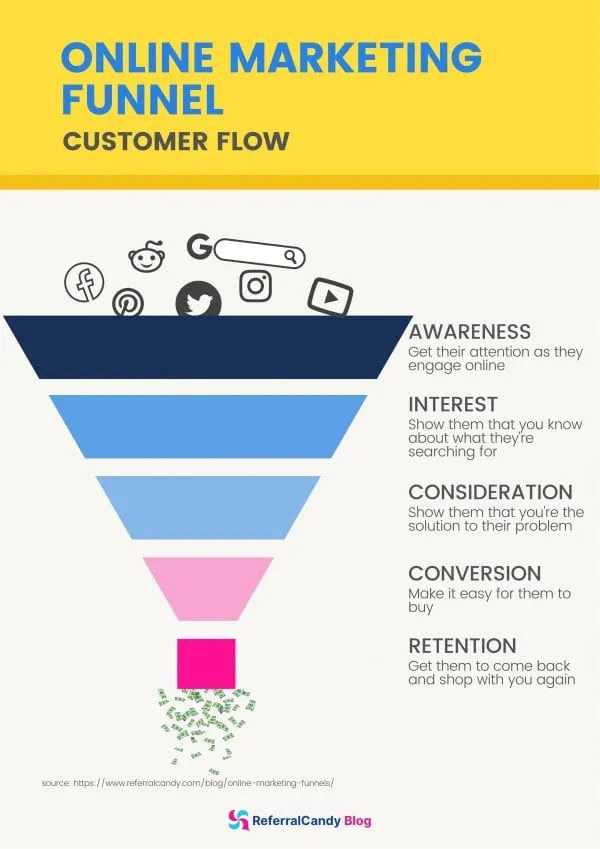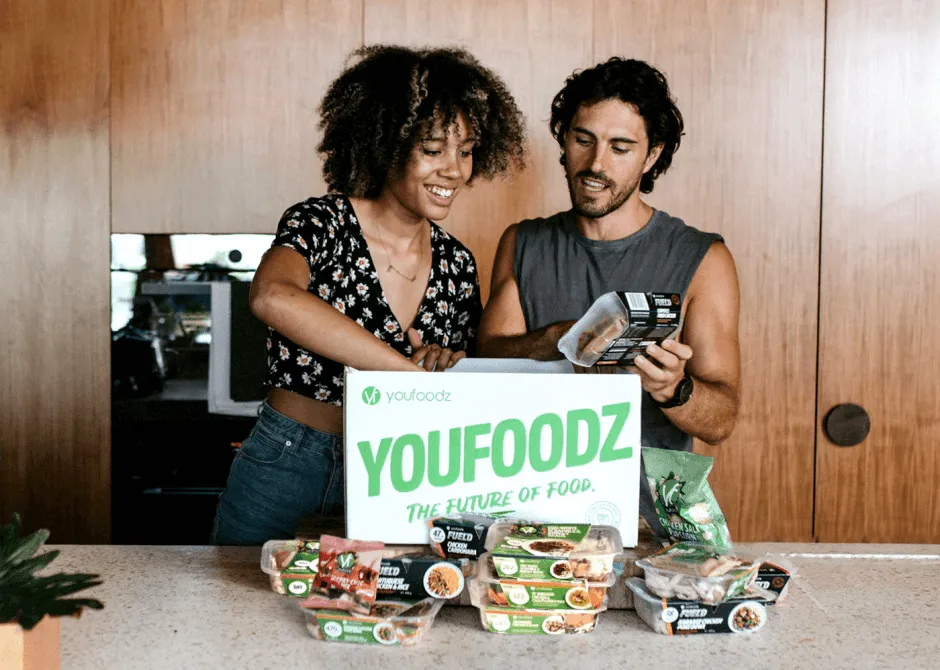
Marketing is about getting people to say good things about your brand—but between a referral program, an affiliate program, and influencer marketing, which is right for your brand?
With surging ad costs and data privacy concerns, word-of-mouth marketing has become more valuable and trusted. We’ll help you understand the nuances and figure out which works best for your brand right now.
Let’s start with simple definitions:
A referral program offers your existing customers a small referral incentive to share about your brand. The referred friend also gets a small discount when they buy.
An affiliate program happens when you partner with a content creator to create sales-oriented content. Affiliates typically make a commission on sales generated through their content. Audiences don’t get a discount but instead use the affiliate link to support the content.
An influencer marketing campaign involves working with influencers to share content with their followers. Typically, influencers get paid upfront to make a one-off post about your brand but there are also other forms of collaboration.
It looks like there are plenty of overlaps but each strategy serves a different need. Let’s ask some key questions to examine the nuances:

It’s possible to be all three—a customer advocate, a content creator, and an influencer at the same time. For example, Kait Bos is a happy customer and referral advocate for Christy Dawn but she also creates content about other brands (with affiliate links) and has also cultivated a following as a fashion influencer.

Referral programs are great for authenticity and sales. Since it’s your happiest customers sharing about your brand to their friends, there’s a real personal connection—and that can strongly influence buying decisions.
Referral programs are also quick to set up and launch since most of the processes can be automated by referral marketing software. After the initial set-up, there’s generally no active management needed, since it’ll be your customers figuring out how to sell your brand.
The biggest disadvantage of a referral program is that it is less scalable than an affiliate program or influencer marketing. You can find more affiliates or sponsor more influencers. But you can’t directly buy more customers. You could, however, encourage more customers to refer their friends by increasing your referral incentives.

Affiliate programs are perfect for creating marketing content for your brand. Your affiliates are incentivized by sales, so they become both salespeople and content marketers for your brand. And since affiliate marketing is an ongoing relationship, the right affiliate can be a reliable, consistent source of traffic and sales.
Affiliates also have a niche audience they’ve cultivated for their content, which means you can reach specific, targeted audiences by choosing the right affiliates. For example, Renogy’s solar panels have been popular with van life travelers but by reaching out to a boat life vlogger, they reached a new market of yacht owners.
On the other hand, affiliates may work with many brands, including direct competitors in your niche. This is especially true for review sites and unboxing channels.
Smaller teams may also find it difficult to manage affiliate programs because of the workload required in constantly identifying and recruiting new affiliates and providing existing affiliates with fresh content and collaterals.

Influencer marketing campaigns are amazing for reach and brand awareness. You get instant access to an influencer’s following overnight.
You can also scale up and down the scope for each campaign by working with different tiers of influencers, from world-famous superstars like Cristiano Ronaldo or campus student vloggers.
The right influencers can also elevate the image of your brand by associating their street cred/suave charm/wholesome positive energy with your brand. For example, Christy Dawn added a bit of Hollywood glamour to the brand through collab pieces with famous actresses Emily Ratajkowski and Leighton Meester.
The flip side of influencers’ amazing reach is that their following may be too diverse; some people follow famous people just because they are famous. For a merchant, that means that the number of potential customers is only a fraction of the total number of followers. And since influencers are paid for posts, not sales, they have little incentive to drive sales.

Referral programs are great for brands who have found product-market fit and are regularly growing their customer base but not so good for brands who are just starting. Small-to-medium businesses and bigger brands can all benefit from referral marketing programs.
Affiliate programs work well for brands at all stages of growth looking to create more marketing content. Even smaller marketing teams can work with agencies or affiliate networks to manage the campaigns.
Influencer marketing campaigns are amazing for brands at all stages of growth looking to reach broader audiences, whether it’s global brands who can capitalize on the increased reach and attention, or smaller brands looking to start building an audience.
Referral programs are relatively cheaper to set up and maintain since modern referral marketing software automates most of the processes. Referral incentives are also usually small cash rewards or affordable store discounts, which also get customers to buy again.
Affiliate programs are medium to high cost, since affiliates may require free products for trial, will take some investment to recruit, and are paid a commission on sales.
Influencer marketing campaigns generally cost the most because influencers usually want to be paid upfront for their posts. But you can adjust the cost of your campaign by working with influencers with fewer followers.
Now that we have a clearer picture of what each type of campaign can do, it’s time to ask which one works best for your brand right now. Here are five questions to consider:
If your bottleneck is awareness: Influencer marketing or affiliate program > Referral program
If you need help with consideration or conversion: Affiliate & referral programs
If you need help with retention or advocacy: Referral programs

Where is the bottleneck in your marketing funnel?

People with sensitive skin who work out might enjoy this product
If you have a small customer base, you will see limited returns from a referral program.
Otherwise, all three—referral, affiliate, and influencer—will work for your brand.
Another important consideration is how much resources you have to invest in these marketing campaigns, in terms of both time (manpower) and money.
Referral marketing requires the least time to set up and keep running, as modern referral marketing software automates most of the processes.
Affiliate and influencer marketing requires a much higher investment of time upfront, because of the effort needed to find affiliates or influencers to work with, provide a brief, and coordinate their posts.
Affiliate marketing also requires an ongoing investment of time to monitor affiliate content and provide them with new materials and collaterals to create new content.
Referral marketing can be set up cheaply with software, and incentives are relatively cheap.
Affiliate and influencer marketing can cost anywhere from zero to millions of dollars, depending on the size of the audience or following. In general, affiliates and influencers will want upfront payment, whether in cash or products in kind. The cost can also increase if you use an affiliate or influencer marketing agency, who can help with the management.
Let’s end the article by taking a look at brands that rely on two or all three of the word-of-mouth marketing campaigns mentioned.

IPSY is a beauty subscription service that delivers you a monthly Glam Bag of skincare and cosmetic products, personalized to your preferences.
IPSY incentivizes subscribers with IPSY points for successful referrals, which can be redeemed for free products. The brand also runs an affiliate program for content publishers to ensure a steady stream of Glam Bag reviews and unboxing videos. Finally, the brand elevates the brand by collaborating with influencers like Khloe Kardashian, Huda Kattan, and Halsey on limited-edition Glam Bags.

Instead of your regular Glam Bag, you get curated items selected by Halsey.

YouFoodz is a meal subscription service that makes healthy eating easy, with ready-made meals delivered to your doorstep.
Since food is experiential, you’re more likely to trust a personal recommendation from a friend who has tried it, which is why YouFoodz invested in their referral program. To complement this, the brand also worked with many influencers to reach new customers across every demographic.

Baronfig offers classic productivity tools: custom journals, writing pens, and carrying accessories.
Once again, we have an example of a product with features that need to be experienced to be understood. Baronfig works with sites like Packhacker to review new products while also running a simple Give $10, Get $10 referral program.
One customer loved the brand so much he reviewed it on his YouTube channel—remembering to share his referral code, so he could buy more Baronfig.
Now that you've read through our thoughts on referral, affiliate, and influencer marketing, it's time for you to weigh out what makes the most sense for your brand at this time.
If you're interested in influencer marketing, we've recently pushed out a new initiative to help small-medium brands get authentic video posts from suitable influencers—without the crazy upfront fees and tedious coordination work. Learn more here.
Darren is a content/SEO writer and product marketer. He doubled search traffic for the blog and put ReferralCandy on the front page of the Shopify AppStore.
Grow your sales at a ridiculously
lower CAC.